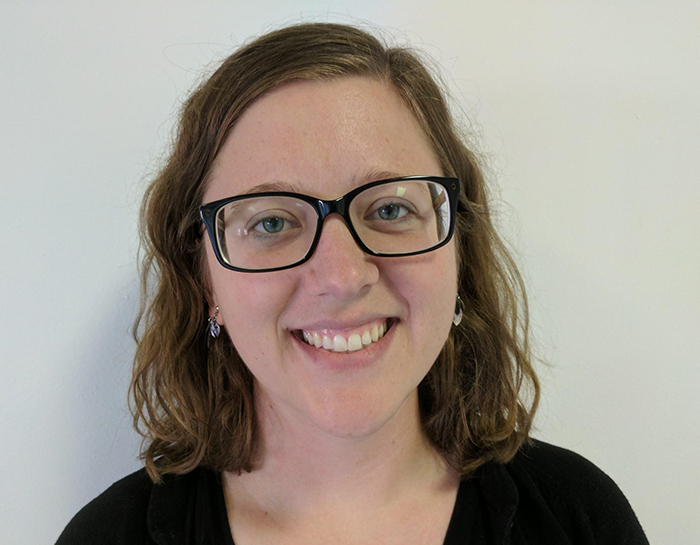We’re taking time over the following weeks to get to know the members of the GSA’s Early Career Scientist Committees. Join us every week to learn more about our early career scientist advocates.
![]()
Alison Gerken
Communication & Outreach Subcommittee Liaison
United States Department of Agriculture
Research Interest:
I am working to understand why specific insect pests are attracted to stored grain. Our goal is to understand some of the functional genetics of their sensory systems—from antennas to mouthparts and beyond. I use behavioral tests together with methods such as RNA-seq and population genetics comparisons on several populations to find candidate genes. I next plan to knock down these genes using RNAi and to then reassess attraction behaviors. I am eager to expand my molecular skill set, increase my knowledge of chemical attractants such as pheromones, and hone in on genomic regions or specific genes involved in sensory perception.
As a PhD-trained scientist, you have many career options. What career paths interest you the most?
My long-term goal is to continue studying stored grain insect pests by using a combination of behavioral and ecological assays to assess the genetics of attraction/repulsion and behavioral genetics associated with aggregation. I would like to expand my research to assess the population genetics of these insect pests at different locations in the U.S. and assess the ecological factors associated with infestation of these insects. I plan to submit grants with academic and local governmental collaborators. Career-wise, I think a position in a government, academia, or industry would all be rewarding for me in different ways.
In addition to your research, how else do you want to advance the scientific enterprise?
I want to build on the training that I received through the NSF GK-12 fellowship while at Kansas State University to enhance and promote the communication of advancements in the field of genetics and their significance. Advancements and discoveries in the genetics community are applicable to many scientific fields, as well as the non-science community. We need to strengthen our ability to share relatable stories and examples with those not in our field, and I want to contribute to filling that need.
Additionally, caring for our environment while maintaining the levels of agricultural production needed for sustainability is really important to me. We have to delicately balance the need to protect the earth with the reality that we rely on the earth for our existence. As I was growing up in South Dakota, I was aware of the importance of agriculture to the community and state. As I studied more ecology, I learned about the importance of the entire ecosystem—the needs of the environment and the needs of the farmer. Because of this, I look forward to working with other scientists to communicate with the non-scientific community regarding the important contribution foundational research provides for advancing our understanding of how we can balance our dependence on the earth and care for the environment.
As a leader within the GSA, I now have several avenues that I can explore to work with others to communicate science while also providing support for students and early career scientists.
As a leader within the Genetics Society of America, what do you hope to accomplish?
During my graduate school training, I was involved with several different groups on campus and worked closely with fellow classmates on a regular basis. Since leaving graduate school, these interactions and involvement opportunities are not as abundant. This is one of the primary reasons that I applied for a leadership position with the GSA—so I could connect with other people doing genetics research. I also want to give back to organizations that helped shaped my research and graduate student career. Leadership opportunities within the GSA provide an opportunity to connect with students and postdocs that are navigating their research journey. The leadership and professional development program sponsored by the GSA lets me provide support for early career scientists in important areas.
As part of the communication and outreach committee, I am working on a few projects to highlight advancements made in the broader scientific community that depended on foundational knowledge from genetics—including the use of genetic, genomic, and molecular techniques. Our work will include developing easy to understand and relevant presentations, infographics, and possibly artwork to communicate important advancements throughout our community’s history. One of the most important aspects of this committee is that all of the researchers come from varied backgrounds; each of us has something different that is important to us or that has helped shape our research. We will learn from each other about defining an important discovery and share techniques to better communicate a broad range of topics and their relevance to the lives of others.
Previous Leadership Experience:
- NSF GK-12 Fellowship
- Treasurer, Kansas State University Biology Graduate Student Association
- Kansas State University Student Representative for Faculty Committees
- Mentor to six undergraduate students































